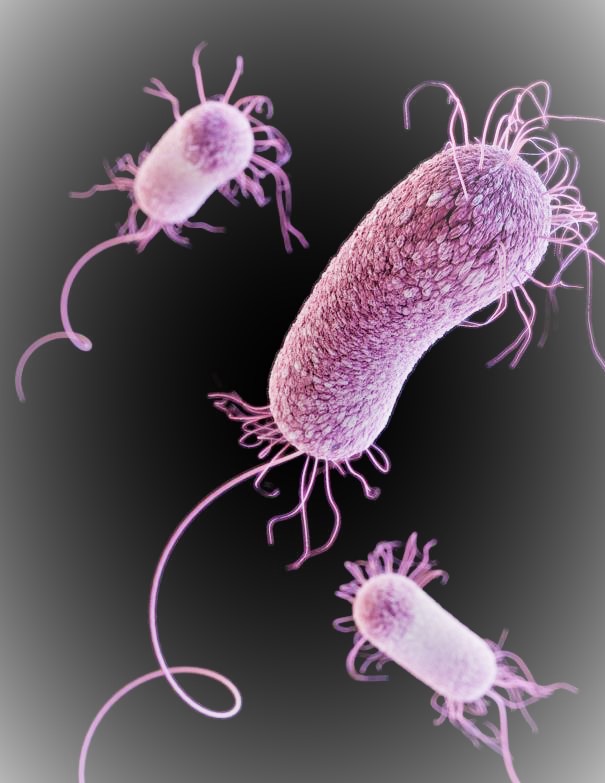*****[UNDER CONSTRUCTION]*****
About the Maryland ARLN Laboratory
The ARLN is a national network of 7 regional public health laboratories and epidemiologists that are working closely with the CDC and other public health and clinical laboratories within their states, to detect existing and emerging types of antibiotic resistance, track emerging resistance more effectively and generate stronger data to combat future resistance threats. The Mid-Atlantic region of the ARLN includes the states of Maryland, Pennsylvania, Delaware, Virginia, West Virginia, North Carolina, South Carolina and the District of Columbia. The Maryland Public Health Laboratory (MD PHL) is the regional ARLN laboratory for the Mid-Atlantic region.
MD ARLN Contacts 
Robert Myers, Ph.D. - Director
Maryland Department of Health
Laboratories Administration
1770 Ashland Avenue
Baltimore, MD 21205
Niketa Jani, Ph.D.Principal Developmental ScientistDivision of Molecular Biology
Maryland Department of Health (MDH)
Laboratories Administration
Phone (O) # 443-681-3922
Main Phone # 443-681-3800
Main Fax# 443-681-4501
Email: Niketa.Jani@Maryland.gov
Elisabeth Vaeth, MPH
Epidemiologist, Emerging Infections Program
Prevention and Health Promotion Administration
Maryland Department of Health
201 W. Preston St., 3rd Floor
Baltimore, MD 21201
410-767-9843
Mid-Atlantic State Public Health Lab Contacts
Download Point of Contact document here.
MD ARLN Laboratory Testing
CARBAPENEM-RESISTANT ENTEROBACTERIACEAE (CRE) COLONIZATION TESTING
Goal: Detect the presence of carbapenemase-producing organisms in order to intervene and stop the spread.
Organisms of interest: Non-endemic carbapenemase-producing gram negatives
What is sent to MD PHL:
- Index patient's clinical isolate if the resistance mechanism has not yet been identified. The gene responsible for carbapenem-resistance must be determined prior to screening other patients for colonization.
- Rectal swabs for patients with possible exposure to the index patient (your state's HAI program epidemiologists should assist in determining the population at risk).
Body sites: Any for initial detection, Rectal/fecal swabs for colonization screening.
Initial case detection location: Clinical labs able to detect carbapenemase production, state public health laboratories
Testing to be performed at MD PHL: Xpert Carba–R Assay (Cepheid)
Reporting: Results will be returned to the submitting state's PHL, HAI program coordinator and submitting facility and to the CDC within 24-48hours after completion of testing.
- CRE Colonization Specimen Submission
Cepheid Limitations
TARGETED SURVEILLANCE TESTING
Goal: Detect carbapenemase-producing Acinetobacter and mcr-1/2.
What is sent to MD PHL: Clinical isolates (no more than 25 per site/lab each month) and limited metadata.
Organisms of interest: Carbapenem-resistant Acinetobacter spp. and third-generation cephalosporin-resistant E. coli and Klebsiella spp. from any body site
Initial case detection location: Sentinel labs (1 per state)
Testing to be performed at MD PHL:
- Species identification by MALDI-TOF and ViteK 2
- Antimicrobial susceptibility testing (AST) for phenotypic confirmation of carbapenem-resistant Acinetobacter and third-generation cephalosporin-resistant extended-spectrum β-lactamase (ESBL)-producing E. coli and Klebsiella spp.
- CarbaNP assay to detect carbapenemases production in carbapenem-resistant Acinetobacter.
- Disk dilution and Broth microdilution to detect Extended-spectrum beta-lactamase (ESBL)-producing E. coli and Klebsiella spp.
- PCR (X-pert Carba-R) for Carbapenem-resistant Acinetobacter molecular targets (KPC, NDM, OXA-48-like, VIM and IMP) and for ESBL-producing E. coli and Klebsiella spp (MCR-1 /2)
Reporting: The MD PHL will report mcr-1 and mcr-2 (and any other mcr gene tested), colistin resistance gene-positive isolates and carbapenemase-producing Acinetobacter to the submitting healthcare facility/lab, the jurisdictional HAI coordinator (submitting State PHL), and CDC within 24 hours of detection. Monthly summary reports will be submitted to CDC, jurisdictional state public health laboratories and HAI program coordinators via APHL portal and/or via secure communications.
NON-BIG 3 (CP-CRE OTHER THAN KLEBSIELLA SPP., E. COLI AND ENTEROBACTER)
Goal: Determine the prevalence of CP in non-big -3 Carbapenem-resistant Enterobacteriaceae (CRE).
Organisms of interest: Carbapenem-resistant Enterobacteriaceae other than Klebsiella spp., E.coli and Enterobacter, (such as Proteus, Citrobacter, Providencia etc.)
Body sites: Any
What is sent to MDH: Clinical isolates
Case detection location: Sentinel labs
Testing to be performed at MDH:
- Species identification by MALDI-TOF and ViteK 2.
- Antimicrobial susceptibility testing (AST) for phenotypic confirmation of carbapenem-resistant.
- CarbaNP assay to detect carbapenem-resistant Acinetobacter.
- PCR for Carbapenemases and MCR-1 /2.
Reporting: MCR and CRAB results will be submitted to the submitting lab, jurisdiction HAI program, and CDC within 24 after detection. Monthly summary reports will be submitted to CDC, jurisdictional PHL and HAI program via ARLN portal
ENHANCED DETECTION OF DRUG-RESISTANT NEISSERIA GONORRHEA
Goal: Bacterial identification and antimicrobial susceptibility determination of confirmed gonorrhea isolates
What is sent to MDH: Neisseria gonorrhea isolated from men with urethral discharge.
Organisms of interest: Neisseria gonorrhea initially identified at the sentinel site.
Body sites: Male urethra. (Isolates from other anatomical sites may be submitted under direction from CDC).
Case detection location: Sentinel labs (selected STD clinics).
Testing to be performed at MDH:
- MALDI-TOF for bacterial identification
- Antimicrobial susceptibility testing (AST) by Agar dilution
Reporting: AST results will be submitted to CDC on a monthly basis. Alert MICs will be reported to CDC DTSDP, submitting sentinel site, and the pertinent local and state STD program(s) within one working day. The same will apply for retested isolates.
- Gonorrhea Specimen Submission
N. Gonorrhea Testing Requisition Form
GC AR Lab Guidance
ARLN AMR REFERENCE TESTING
Goal: Act as a reference lab during outbreaks.
When to send isolates to MDH for reference testing:
-
Unique gene found in PCR (NDM, OXA, IMP, VIM)
-
Phenotypic and Genotypic result discrepancy
-
Outbreak of CRE/CRPA and further characterization warranted.
What is sent to MD PHL Clinical isolates
Body sites: Any
Case detection location: State PH labs
Testing to be performed at MD PHL:
Reporting:
SHIPPING INFORMATION

